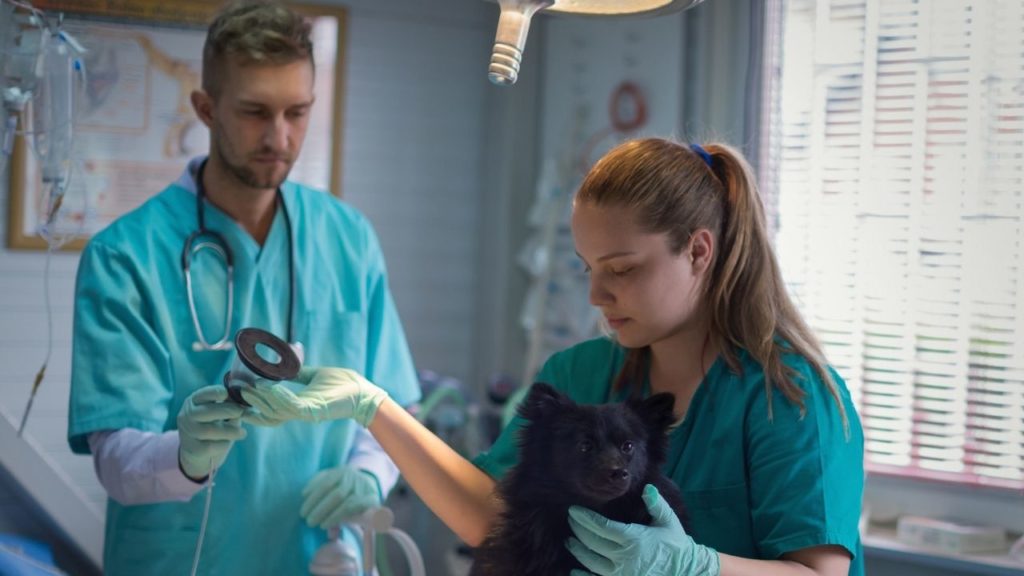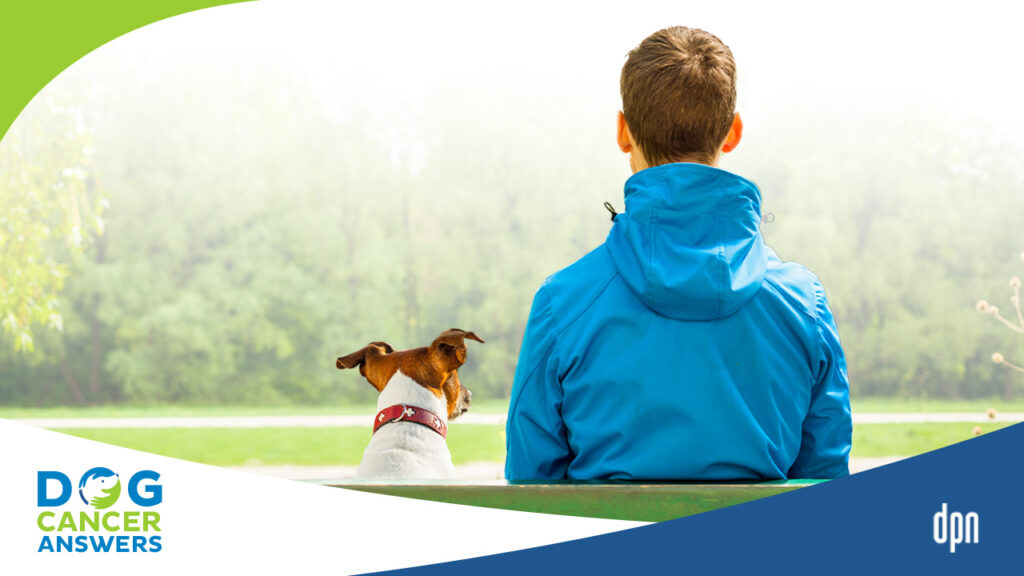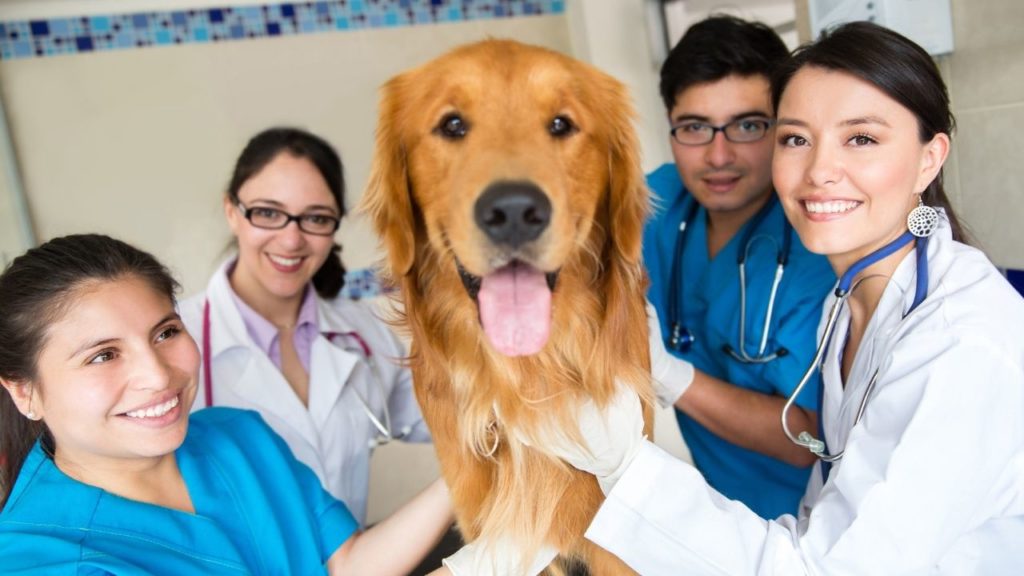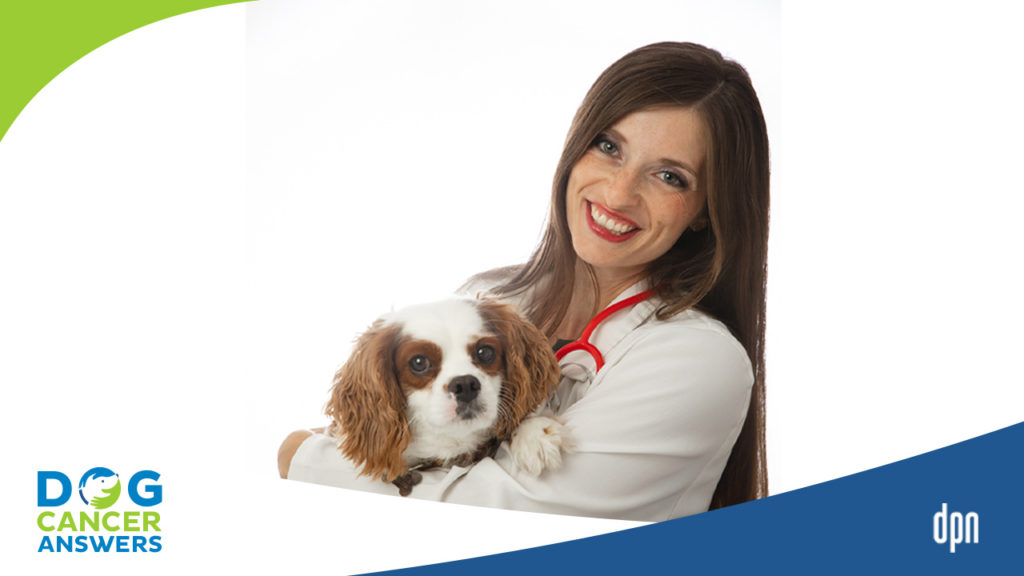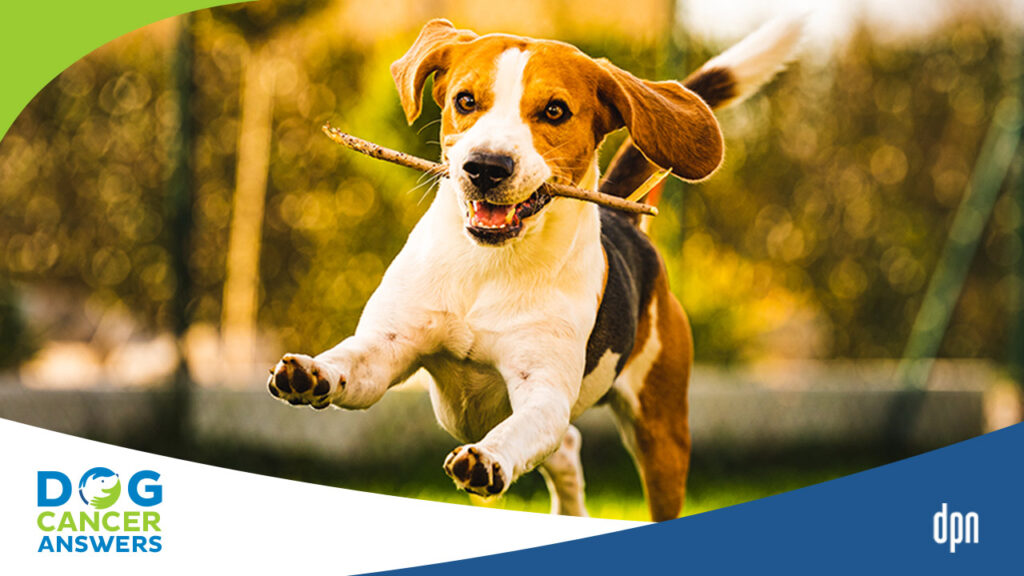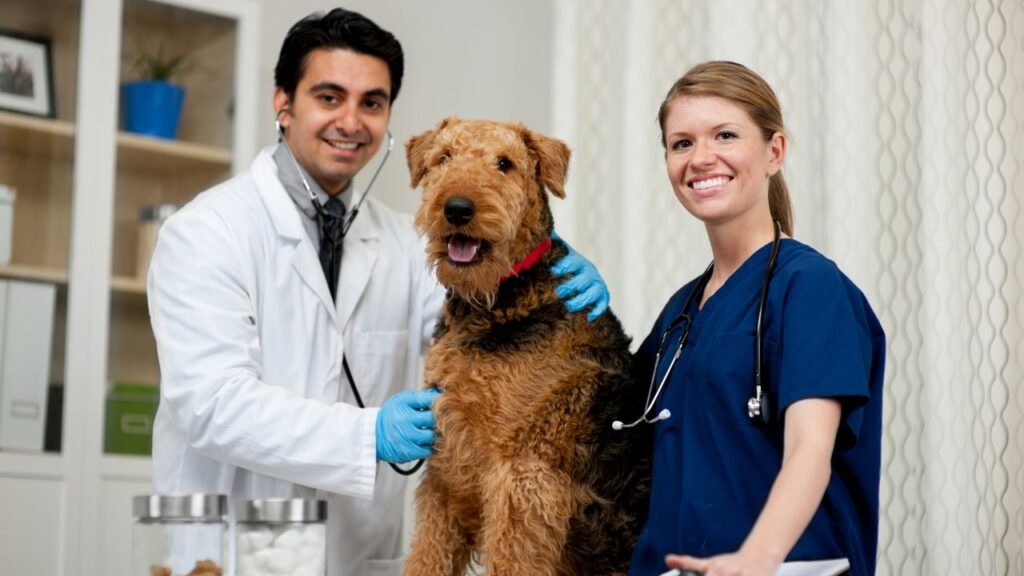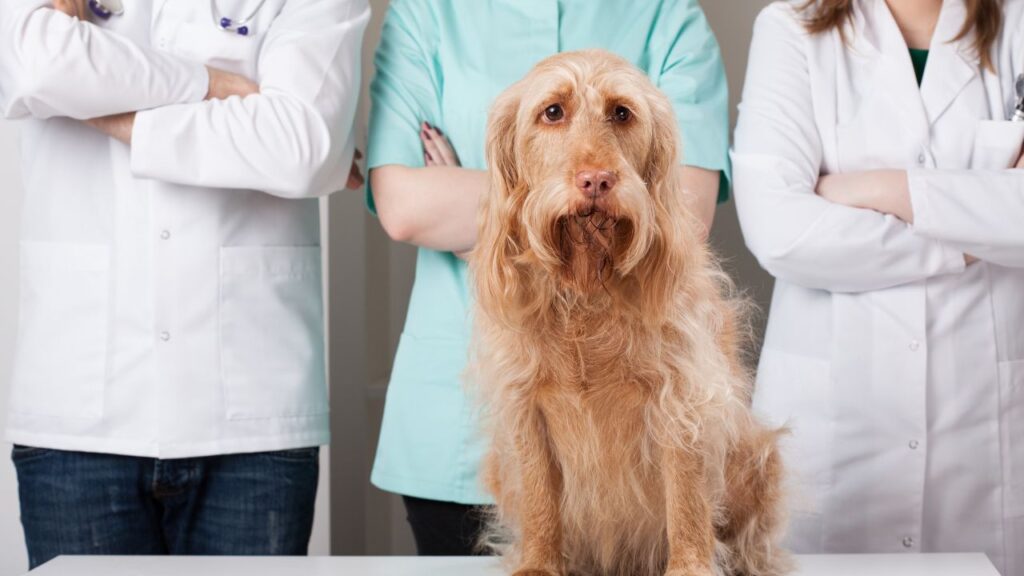A general practitioner is often the veterinarian who breaks the initial news of cancer to a dog lover. They may feel comfortable treating cancer, but in many cases, they will refer you to a veterinary oncology specialist who has more expertise. But is an oncologist really necessary, or just an added expense?
Key Takeaways
- If you feel conflicted about seeing an oncologist, don’t be. Like your own human doctor, a general practice (GP) veterinarian treats a wide range of conditions, but they are not a specialist.
- A veterinary oncologist is a specialist with advanced training and certification in cancer diagnosis and treatment. They live and breathe cancer and are the best at determining a good course of treatment with conventional tools.
- If your oncologist determines chemotherapy is a good way to try to help your dog, they will do everything they can to minimize side effects.
- Veterinary oncologists have one primary concern: your dog’s well-being. They want to treat cancer and improve their quality of life.
- Oncologists work closely with GPs throughout cancer treatment and may even hand off testing, minor surgeries, and follow-up imaging to your GP.
Do You Need a Veterinary Oncologist if Your Dog Has Cancer?
When you’ve just gotten the news that your dog has cancer, you’re often in shock. Getting a referral to a new veterinarian may feel distressing and disorienting. Many dog lovers want to “stay with” their general practice vet because they feel comfortable with them. They wonder what does an oncologist do for dogs that their own veterinarian can’t?
They also often imagine a veterinary oncologist will not be as warm and loving as their general practice veterinarian, even though, in reality, nothing could be further from the truth.
So, if you’re in that boat and wondering if your dog should see an oncologist or vet for dog cancer diagnosis and treatments, you’re not alone. Let’s demystify this for you.
What Is a General Practitioner, and How Do They Treat Dog Cancer?
General practitioner (GP) veterinarians have received a doctorate in veterinary medicine. Some have also completed optional post-doctoral internships in general medicine, surgery, or other specialties.
General practice veterinarians are like your family doctor. They are great at screening for disease, but may refer to a specialist for diagnosis and treatment.
GPs are also called primary care veterinarians. They treat many conditions that affect dogs and can be compared to a family doctor for people. General practitioners:
- Perform procedures, do surgeries, and deliver vaccinations.
- Manage your dog’s general wellness from puppyhood to the end of life.
- Manage both minor and severe cancer cases.
- Perform diagnostics such as bloodwork, urinalysis, x-rays, and sometimes ultrasounds.
Because they are not a cancer specialist, the cost of an examination or diagnostics with a general practitioner is generally less than with an oncologist.
Even if a general practitioner refers to a specialist during cancer treatment, they are still involved. There are only a few hundred veterinary oncologists practicing in North America, so even if they wanted to “do everything” needed to care for your dog, they couldn’t! Your general practitioner will likely still:
- Perform surgery
- Perform monitoring lab work while a dog is undergoing chemotherapy
- Dispense medications
- Perform x-rays to monitor progress and assess for metastatic spread of the cancer
What Does an Oncologist Do for Dogs?
A veterinary oncologist is a veterinary internal medicine specialist who practices exclusively in oncology: the diagnosis and treatment of cancer. They are specially and intensively trained to manage underlying conditions while maintaining a good quality of life in dogs with cancer.1
There are only a few hundred veterinary oncologists in North America.
As I mentioned above, very few board-certified veterinary oncologists are practicing in North America. You will understand why when you see how much extra training they must undergo.
Every oncologist starts by obtaining their doctorate to become a veterinarian, the same degree GPs get. Then, veterinary oncologists receive additional training.
- They generally do a one-year internship in general medicine
- They sometimes do an additional specialty oncology internship
- They are required to do a three-year residency
Two types of oncology residencies are offered. One is in medicine (meaning chemotherapy and other medicines), and the other is in radiation oncology.
After residency, the oncologist passes the veterinary oncology exam “board” and becomes a board-certified oncologist.
Veterinary oncologist Dr. David Vail explains why oncologists can be helpful when your dog has cancer.
Oncology’s Specialty Areas
Medical oncologists deliver chemotherapy, immunotherapy, and targeted drug therapy. A radiation oncologist specializes in radiation therapy.
Keep in mind that general practitioners perform surgery, but board-certified veterinary surgeons also remove tumors. If your dog’s cancer surgery is complex or challenging, you may be referred to a board-certified surgeon to handle it.
You can consult the “find a specialist” website for your region or country to find a specialist. In the U.S., that is VetSpecialists.com.
Oncologist Consultation Costs
An initial consultation with a veterinary oncologist is generally more expensive than a consultation with a GP.
- A consultation can cost up to $250.
- The average cost for canine cancer treatment is around $4,000.2
- Costs depend on the type of tumor and how much it has spread, however, and in some cases, the cost can be much higher.
Although an oncology consultation may seem too expensive, consulting an oncologist is often the best way to learn all available information about and treatment options for your dog’s cancer. In fact, because of their special knowledge, they may be able to save you money.
Why an Oncologist Is Helpful
Oncologists live and breathe cancer diagnosis and treatment every day. It’s all they do. This makes them an invaluable source of information if your dog has cancer. As many cancer cases as a general practitioner might see, they will not have as much experience as a veterinary oncologist.
This is true even when money is a concern. That’s because oncologists are the best ones to advise about what tests are important to run and which can be skipped in favor of treatment.
Oncologists Do Not Expect You to Use Every Option
It’s important to remember that just making an appointment for a consultation does not lock you into a course of treatment. It’s just a consult, not a treatment appointment.
Oncologists do not want you or expect you to automatically take their advice.
Oncologists do not expect you to take their advice automatically or make treatment decisions during the consultation. They know that you will need time to discuss treatment options with your family and consider your budget.
They will understand and offer their best advice if you need time to think and decide what to do.
Dr. Demian Dressler and Dr. Sue Ettinger (Dr. Sue Cancer Vet, a veterinary oncologist) discuss why second opinions are important when considering cancer treatment.
Is It Worth Putting a Dog Through Chemotherapy?
The answer to this question will be different for every dog cancer case. Dogs tolerate chemotherapy much better than humans, and veterinary oncologists put their comfort and safety first.
A veterinary oncologist’s primary concern is treating your dog’s cancer without lowering the quality of life.
Things to Consider: Oncologist or Vet?
You probably like and trust your general practitioner. That is understandable. However, you might want to consider adding an oncologist to your team, and your GP may also want to, as well.
General practitioners often refer to veterinary oncologists for the treatment of cancer cases. There are many reasons why a general practitioner may refer, including:
- Lack of experience in treating the type of cancer
- Not having specific diagnostic tools
- Not being able to manage the special handling requirements for certain chemotherapeutics.4
GPs are excellent at screening for diseases, and some administer cancer treatments such as chemotherapy, but they just do not have the same intensive, specific training in oncology as a specialist.
Dr. Kristen Lester is a general practice veterinarian who also performs chemotherapy.
Veterinary Oncologists Have More Equipment and Resources for Cancer
Some cancer treatment modalities require significant investment in expensive technology.
- Veterinary oncologists will have more experience using multi-drug protocols and the most current treatments than most GPs.4
- Radiation machines cost hundreds of thousands of dollars, require special housing, and require a full-time staff physicist to keep them in good working order.
- These tools are more common in veterinary oncology offices since they will be used more frequently.
Veterinary oncologists also often work in a specialty facility alongside other veterinary specialists such as surgeons, internal medicine specialists, and radiologists. Having these connections readily available can be helpful, as the oncologist can quickly and easily ask colleagues for their input.
Other Factors to Consider When Building Your Team
It is a major decision to select the veterinarian(s) you will entrust to treat your dog with cancer. Choosing a veterinarian that has expertise in treating the specific type of cancer your dog has is important. Your regular GP is often the best place to start building your team. They know your area’s “lay of the land” best.
Your veterinarian is the best source of referrals for local oncologists.
Are There Veterinary Oncologists Nearby?
Oncologists tend to be in large metropolitan areas or working in research universities. Depending on where you live, there may not be as many options. Follow-up appointments may be frequent, and it is important to find a location that is a reasonable distance, so you can keep up with the treatment schedule.3
If there are no veterinary oncologists nearby, your veterinarian can almost certainly consult with one by phone or even video conference.
Communication Is Key
You often can have the best of both worlds. Discuss your goals for your dog and your time, travel, and financial limitations with your regular vet to help determine the best way forward.
If you cannot visit an oncologist in person, you may be able to do a remote consultation.
Perhaps your general practitioner will handle all routine testing and follow-up scans, leaving the specialized treatments to the oncologist.
Veterinarians are trained to work together as a team to help your dog.
Like in human medicine, GPs and specialists expect to work as a team. Your dog’s GP and oncologist can work together to develop a treatment plan that fits your dog’s needs and yours.
- What is veterinary oncology? Ross Vet. https://veterinary.rossu.edu/about/blog/veterinary-oncology. Published February 8, 2022. Accessed December 10, 2022.
- Cat and dog chemotherapy cost and financing. CareCredit. https://www.carecredit.com/well-u/pet-care/cat-and-dog-chemotherapy-cost-and-financing/. Published January 23, 2021. Accessed December 10, 2022.
- The role of the general practitioner or referring veterinarian. American Animal Hospital Association. https://www.aaha.org/aaha-guidelines/oncology-configuration/implementation-toolkit/the-role-of-the-general-practitioner-or-referring-veterinarian/. Accessed December 10, 2022.
- Kidd C. The many challenges of veterinary oncology. The Canadian veterinary journal = La revue veterinaire canadienne. https://www.ncbi.nlm.nih.gov/pmc/articles/PMC2572103/. Published November 2008. Accessed December 10, 2022.
Topics
Did You Find This Helpful? Share It with Your Pack!
Use the buttons to share what you learned on social media, download a PDF, print this out, or email it to your veterinarian.
